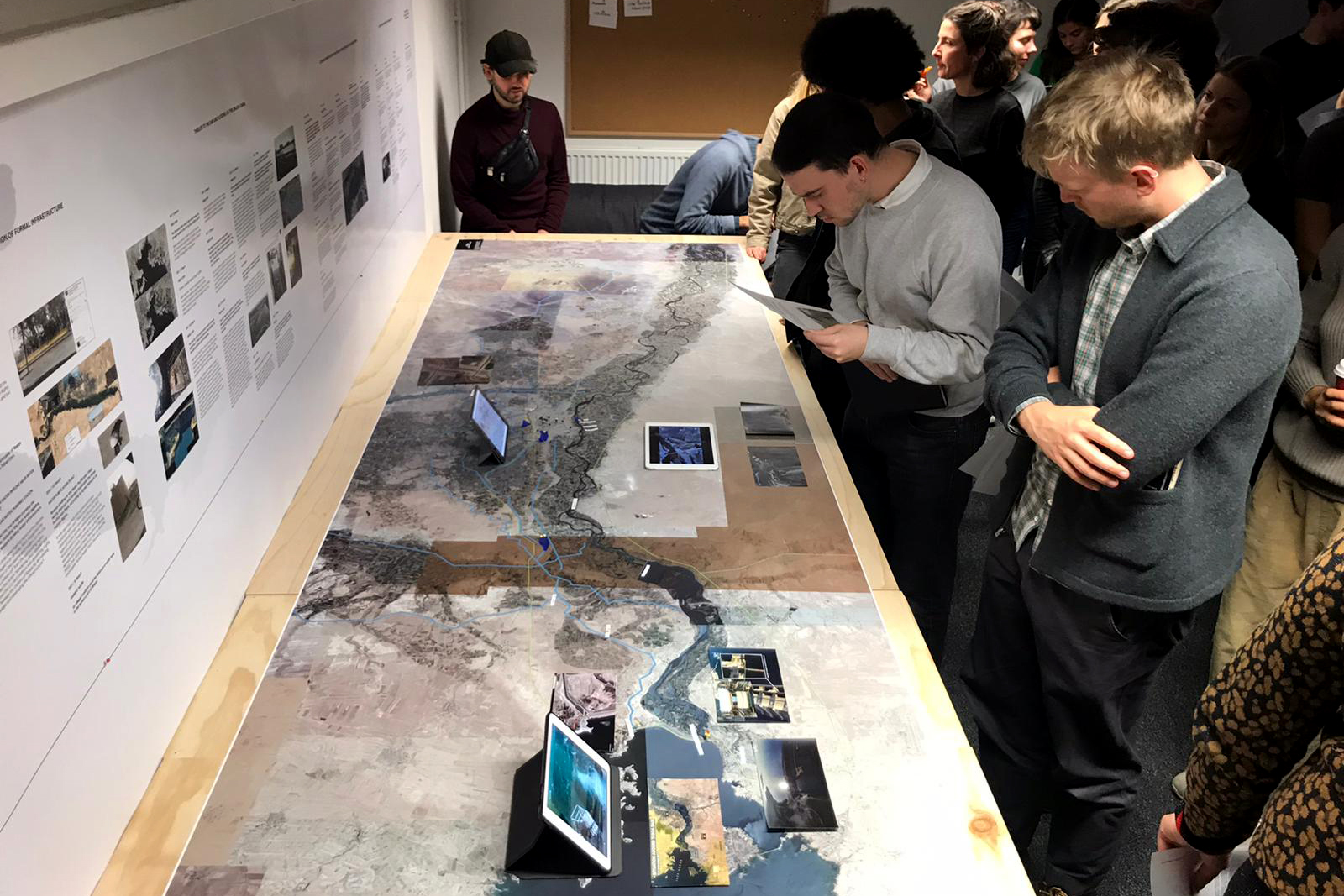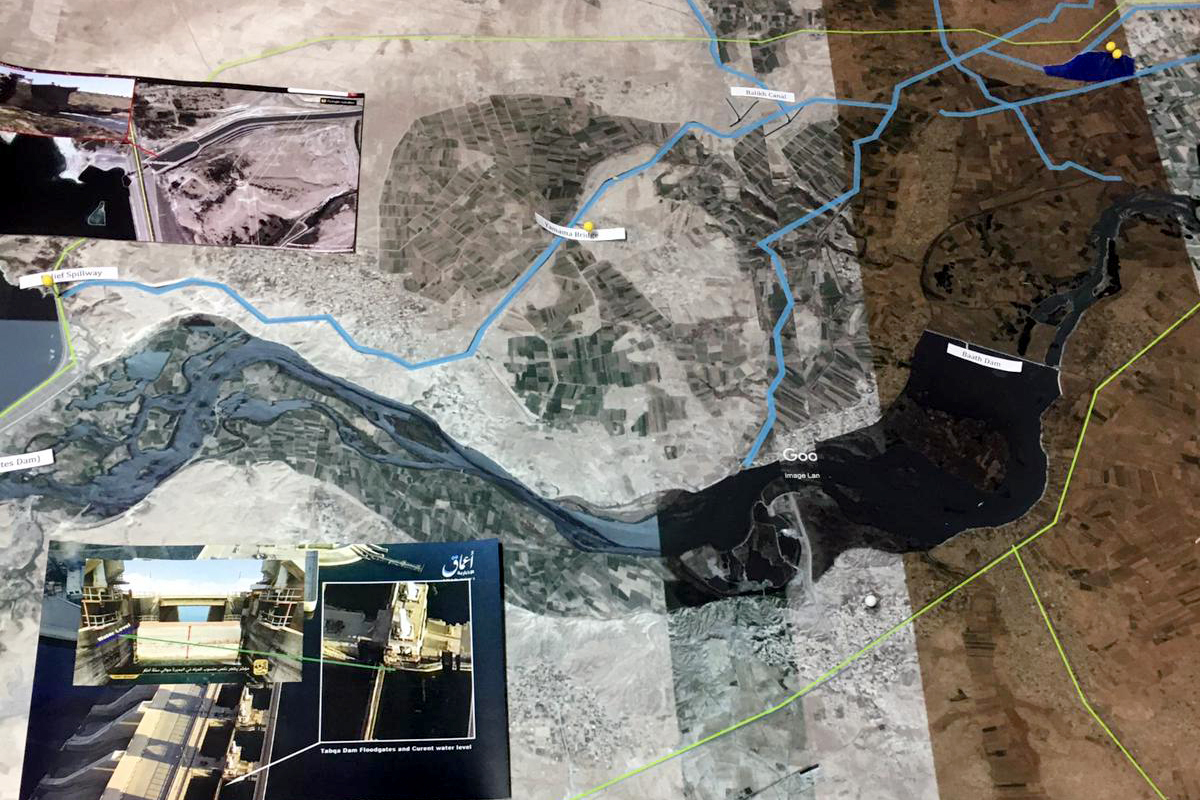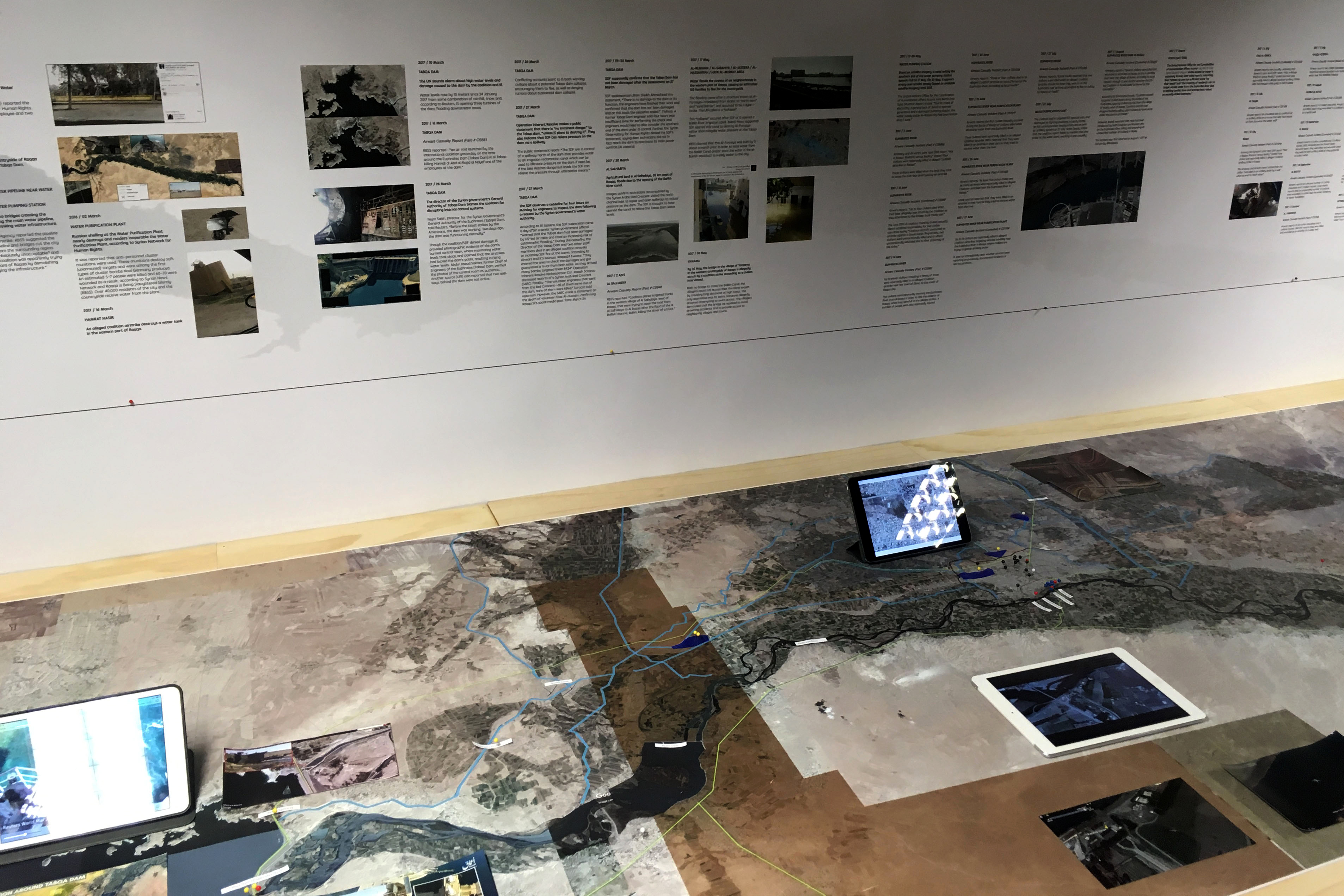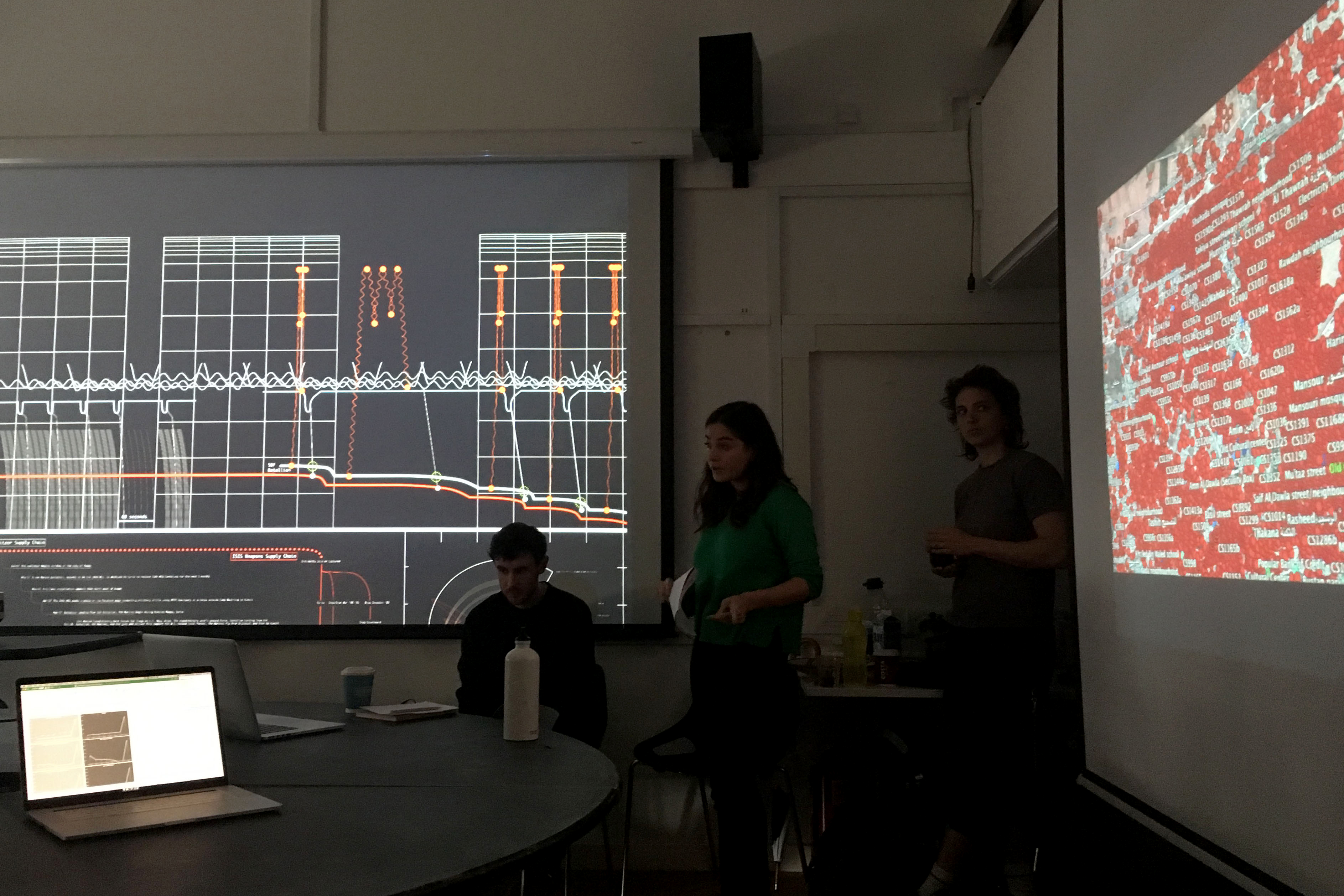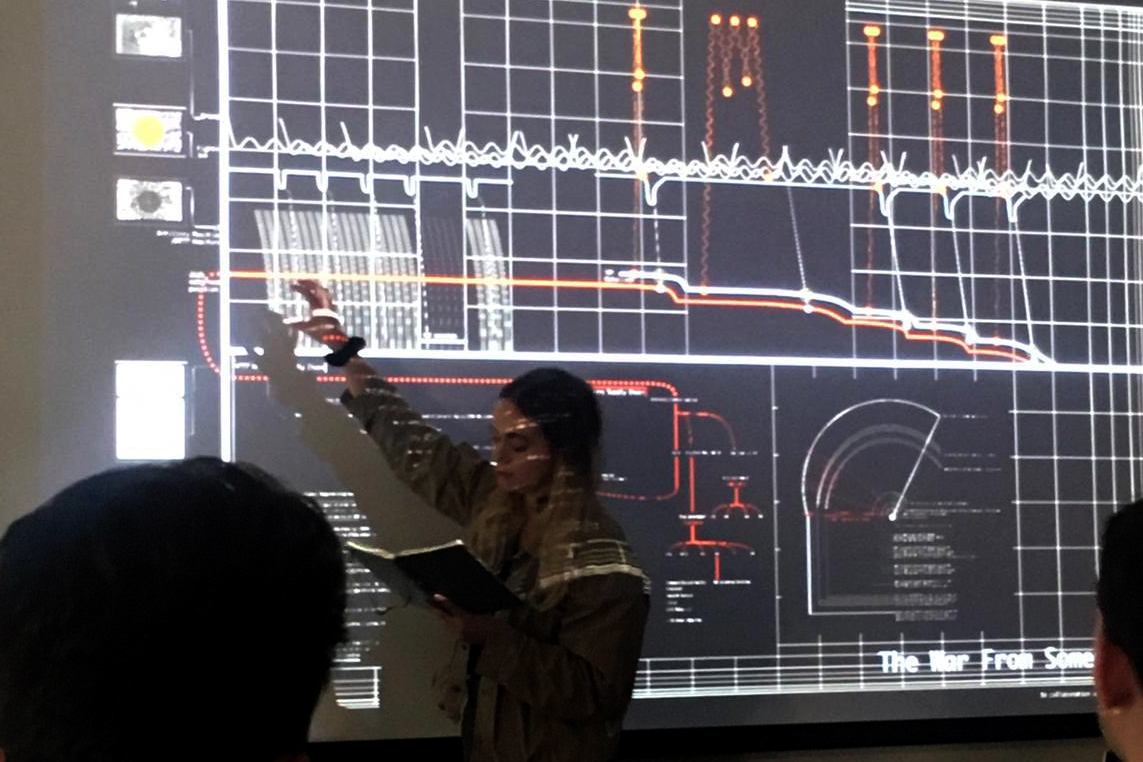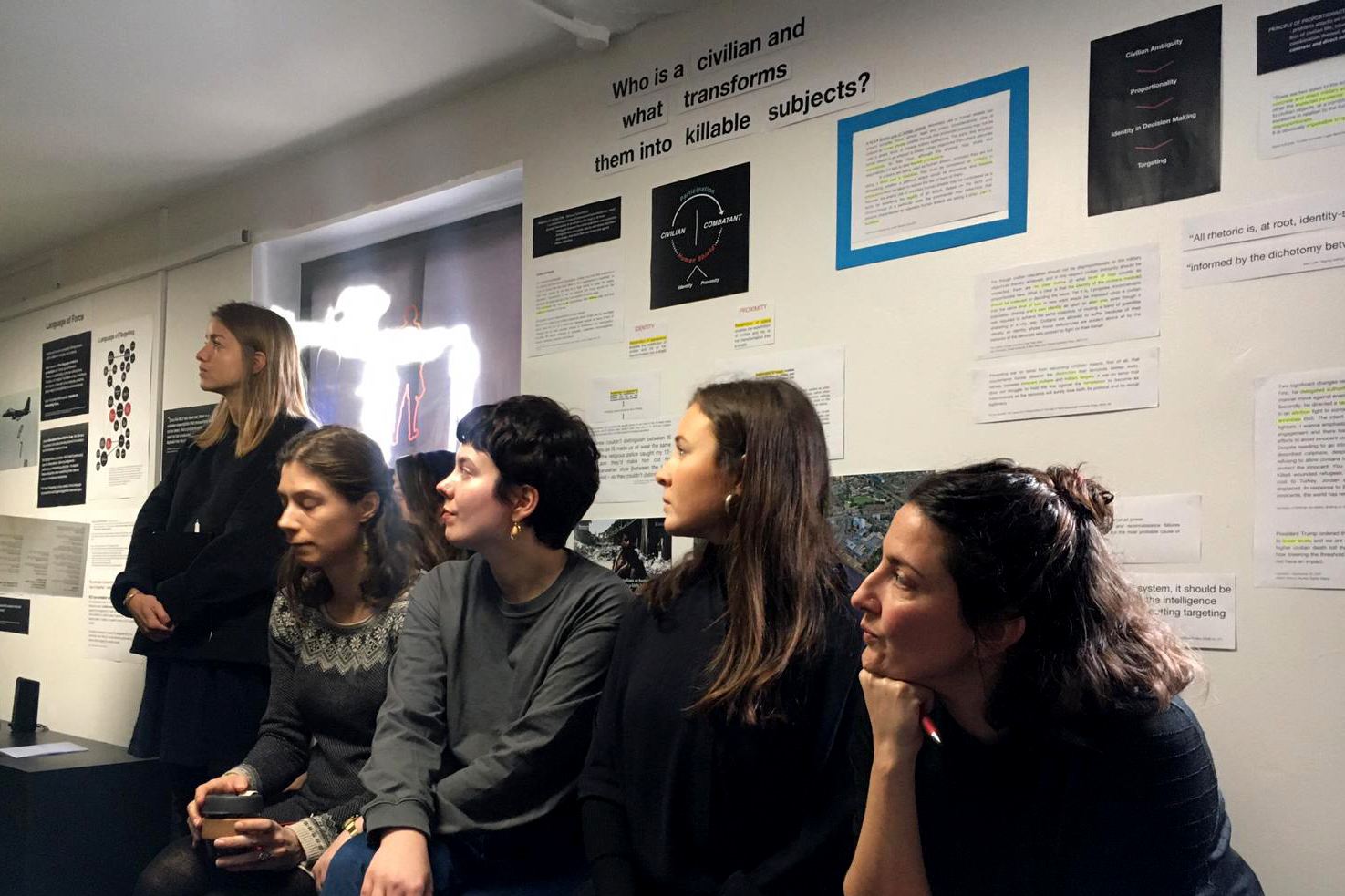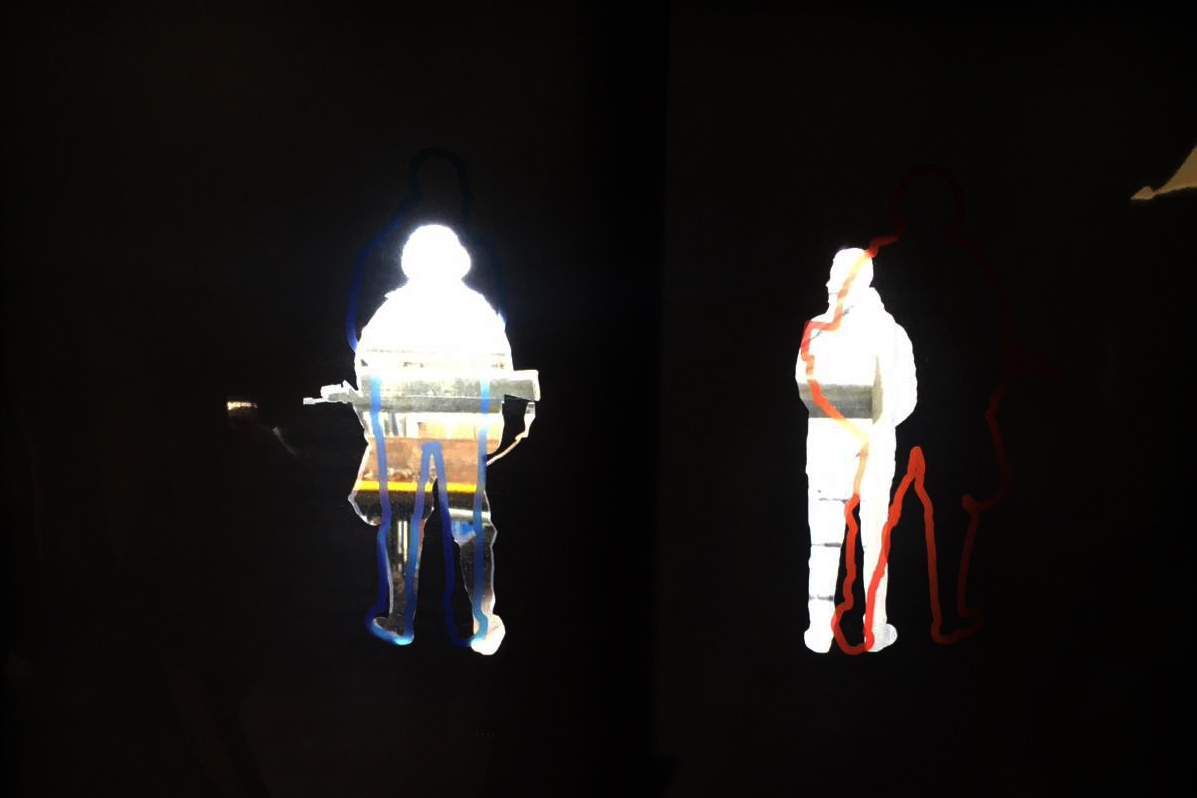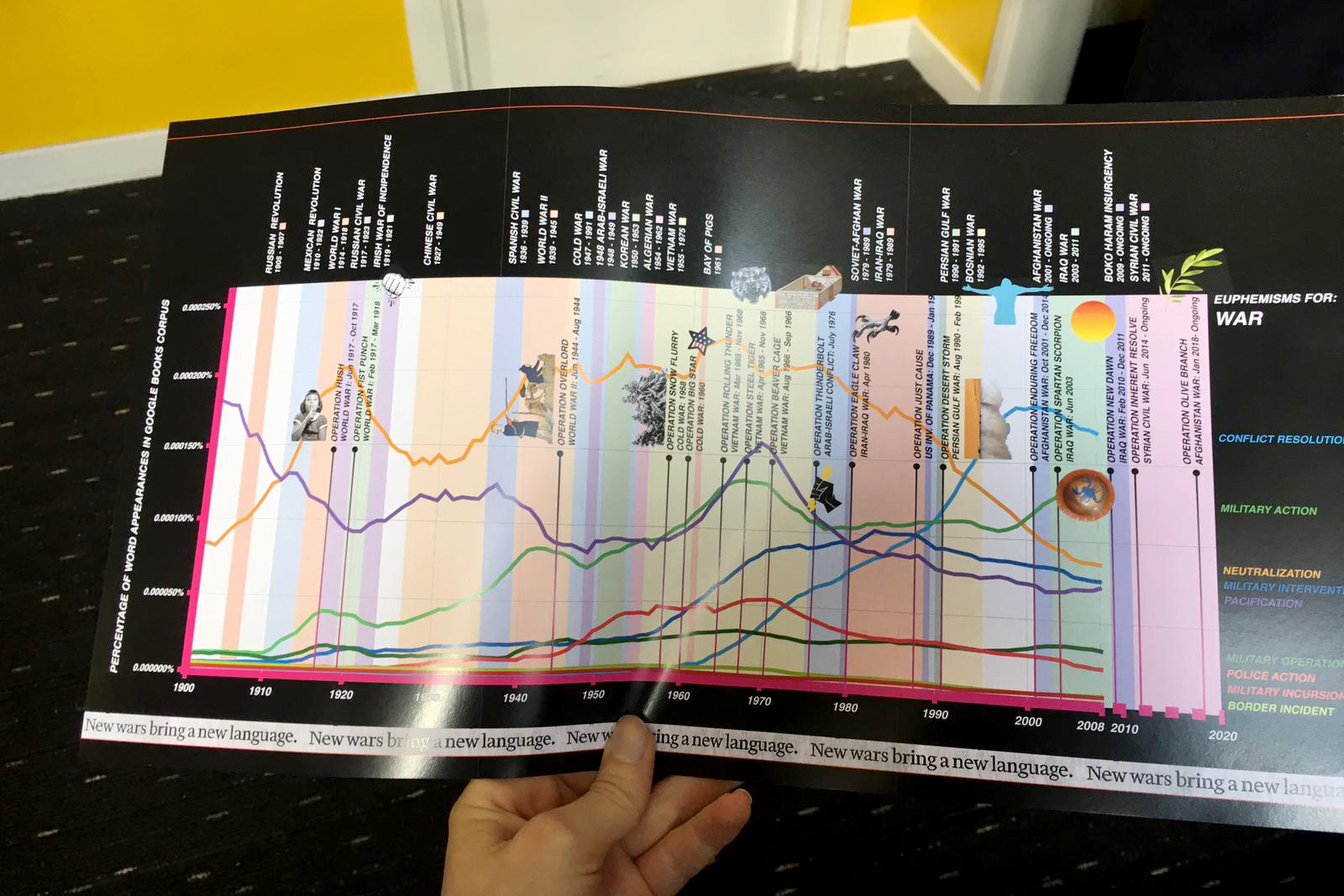War in Raqqa
Live Project
2019-20 MA Cohort
Live Project
2019-20 MA Cohort
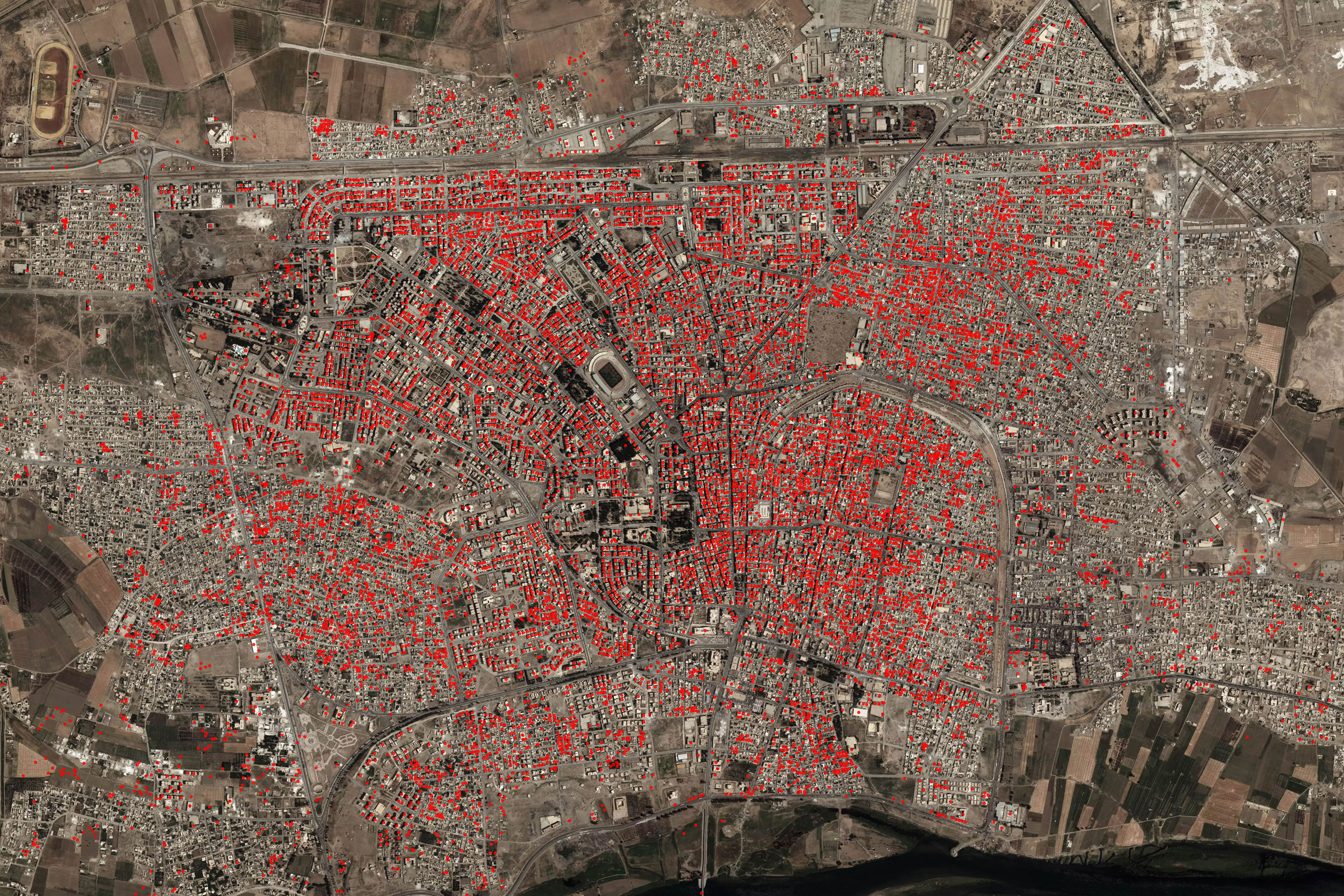
Map of destroyed and damaged buildings in Raqqa, Syria
Resources:
Missing Datasets / Data Collection as Activism
Screening: “The Cleaners, ” dirs. Hans Blck & Moritz Riesewieck, 2018. Q&A with Abdulwahab Tahhan
Workshop: “Resilience, Ethics, and Secondary Trauma in Open Source Investigations” by Leenah Bassouni
Organisers: Sophie Dyer & Hann Rullman (former MAs)
Supported by Airwars and their investigative materials
In May 2019, Amnesty International and Airwars launched the humanitarian report ‘War on Raqqa: Rhetoric versus Reality.’ Believed to be the most comprehensive study yet by civic society into contemporary warfare, the report fused field research with crowd and open source data to record 1,600 civilians deaths from US-led Coalition air and artillery strikes on the Syrian city of Raqqa. In addition to the civilian casualty count, the organisations gathered survivor accounts as well as 1,000 victim names, 641 of which were verified by Amnesty on the ground in Raqqa. The joint investigation lasted 18 months, a year longer than the battle itself. Amnesty field researchers visited more than two hundred strike sites and spoke to over four hundred witnesses and survivors. Online, more than 3,000 digital activists analysed a total of more than two million satellite image frames on the micro tasking platform, Strike Tracker. At present, the Coalition has admitted responsibility for killing just 180 civilians in the Battle of Raqqa, less than 10% of the deaths recorded by Amnesty and Airwars. Twenty-four of these deaths were conceded after the publication of War in Raqqa. The United States, France and Britain, took part in the fighting. No individual country has yet assumed accountability for a single death.
The battle lasted four months from 06 June until 20 October 2017. The Coalition conducted in “remote war” of air and artillery strikes in support of Syrian Democratic Forces on the ground. It bombarded Raqqa with over 20,000 artillery rounds and 3,632 airstrikes, according to the US military sources. In the aftermath of the fighting, up to 80% of the city was left destroyed or rendered uninhabitable, according to United Nations analysis.
Before Amnesty and Airwars work, no comprehensive data existed on the civilian toll of the fighting in Raqqa. Civilian deaths were a “missing dataset”. On the two year anniversary of the battle and five months after the publication ‘War on Raqqa: Rhetoric versus reality’, together we will “look again” at the raw research behind the project. What might we learn or find out by re-assessing the data? What has happened since the report was published: How has the Coalition or individual allies responded? Which civilian casualty cases did they concede as ‘Credible’ and which did they dismiss as ‘Non Credible’? Are there other, perhaps new, ‘missing datasets’? What or whose stories have yet to be told? Or, under different conditions, could be told differently? A recurrent criticism of the War in Raqqa datasets is that they contained ambiguities. Not all of the deaths were ‘verified’ instead we were left with degrees of un/certainty.


